日语初级语法笔记日语初级语法笔记
大家的日语初级-笔记-日语初级上册语法总结

目录㈠日语常用的词汇分类及用法: (2)㈡动词的分类及「て形」、「ない形」、「た形」的变形规则。
(2)动词的分类: (2)动词「て形」的变形规则: (3)1一类动词: (3)2二类动词: (3)3三类动词: (3)动词「ない形」的变形规则: (4)1一类动词 (4)2二类动词: (4)3三类动词: (4)动词「た形」的变形规则: (4)1一类动词: (4)2二类动词: (5)3三类动词: (5)㈢名词,形容词,形容动词,动词的简体及敬体变形 (5)名詞 (5)形容動詞 (6)形容詞 (6)動詞 (6)㈣上册所学语法中与「て」「ない」「た」相关的语法 (6)㈤常见助词用法的归纳总结 (7)㈥连词:连接句子于句子的词。
(10)㈦疑问词: (11)㈧副詞及接续词: (13)日本人の名前の纏め (20)㈠日语常用的词汇分类及用法:1 名词:在句子中作主语,谓语,宾语,定语(名词+の名词)。
2 形容词:定语,谓语。
3 形容动词:定语,谓语。
4 动词:定语,谓语。
5 副词:可做状语,修饰动词,形容词,形容动词。
6 助词:相当中文里的助词,用于说明一个句子或一个词,与其它句子或词的关系。
㈡动词的分类及「て形」、「ない形」、「た形」的变形规则。
动词的分类:1动词「ます形」的最后一个假名以「い」段假名结尾时,则为一类动词2动词「ます形」的最后一个假名以「え」段假名结尾时,则为二类动词。
其中有一部分特殊的二类动词(它们看起来类似一类)信じる起きる浴びる着るできる見るいる降りる借りる足りる3通常情况下是两个汉字加上します,也有两个汉字加上一个假名再加上します,或者全部是片假名情况,除此之外还有一个「来ます」这种类型的动词则为三类动词。
例えば:动词「て形」的变形规则:1一类动词:①动词「ます形」的最后一个假名以「い、ち、り」结尾时,将它们改为「って」③动词「ます形」的最后一个假名以「き」结尾时,将它改为「いて」⑥話します話して2二类动词:3三类动词:动词「ない形」的变形规则:1一类动词将动词「ます形」的最后一个假名改为其「あ」段假名。
《新版标准日本语初级》TXT课文+笔记。第22课
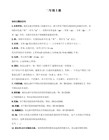
6、小句 けど 小句 【转折】 【铺垫】
“けど”连接两个句子,表示转折,起着把两个句子归纳成一个句子的作用,用于口语。
昨日の試験、どうだった?(昨天的考试怎么样啊?)
――ちょっと 難しかったけど、‘まあまあ できたよ(有点难,不过都做出来了。)
另外,“けど”还有不表示转折而表示铺垫的用法。
C
甲:この ネクタイ 派手?
乙:ううん、全然 派手じゃうん、知ってる。 3493-3945だよ。
语法解释:
1、敬体形和简体形
在口语里,日语的谓语形式根据说话人和听话人之间的上下关系、亲疏关系的不同而不同。迄今为止学习的“~ます”“~です”是对长辈或关系不太亲密的人使用的形式。这种形式我们称做“敬体形”。与此相反,如对方是自己的同辈或是晚辈,或者关系较密切时则使用“简体形”。“简体形”是不使用“ます”“です”的形式。
来週 送別会を するけど、 都合は どうかな?
(下星期要开个欢送会,你时间方便吗?)
应用课文 友達
一天下午,小野的朋友清水给小野打来电话.
小野:もしもし 小野です。
清水:小野さん? 清水だけど。
小野:ああ、清水君、どうしたの?
清水:最近 大田から 連絡 あった?
小野:太田君から?ううん、ないわよ、どうして?
清水:大田、今度 中国へ転勤だって。
小野:本当に? いつ 行くの?
清水:たしか 来月だよ。
小野:急ね、中国の どこ? 期間は どのぐらい?
清水:北京だって、期間は 四年か 五年かな。
小野:ずいぶん 長いわね。太田君 一人で 行くの?
清水:いや、奥さんも 一緒だよ。
来週 送別会をするけど、都合はどうかな?
人民教育出版社-中日交流标准日本语初级笔记整理(第21到第40回)
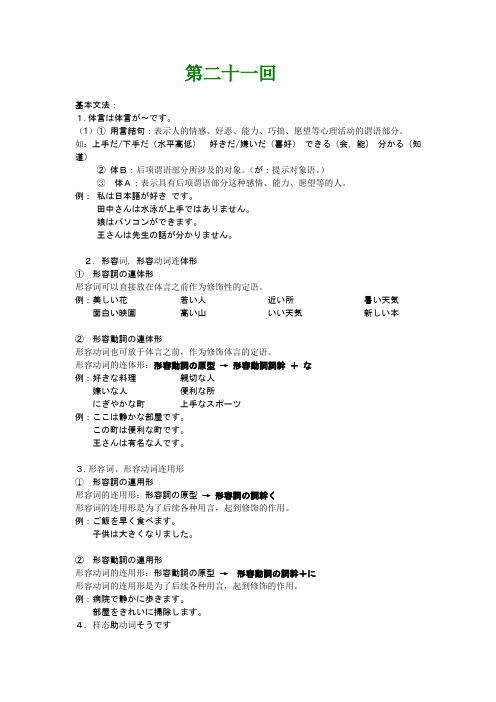
第二十一回基本文法:1.体言は体言が~です。
(1)①用言結句:表示人的情感、好恶、能力、巧拙、愿望等心理活动的谓语部分。
如:上手だ/下手だ(水平高低)好きだ/嫌いだ(喜好)できる(会,能)分かる(知道)②体B:后项谓语部分所涉及的对象。
(が:提示对象语。
)③体A:表示具有后项谓语部分这种感情、能力、愿望等的人。
例:私は日本語が好きです。
田中さんは水泳が上手ではありません。
娘はパソコンができます。
王さんは先生の話が分かりません。
2.形容词,形容动词连体形①形容詞の連体形形容词可以直接放在体言之前作为修饰性的定语。
例:美しい花若い人近い所暑い天気面白い映画高い山いい天気新しい本②形容動詞の連体形形容动词也可放于体言之前,作为修饰体言的定语。
形容动词的连体形:形容動詞の原型→形容動詞詞幹+な例:好きな料理親切な人嫌いな人便利な所にぎやかな町上手なスポーツ例:ここは静かな部屋です。
この町は便利な町です。
王さんは有名な人です。
3.形容词、形容动词连用形①形容詞の連用形形容词的连用形:形容詞の原型→形容詞の詞幹く形容词的连用形是为了后续各种用言,起到修饰的作用。
例:ご飯を早く食べます。
子供は大きくなりました。
②形容動詞の連用形形容动词的连用形:形容動詞の原型→形容動詞の詞幹+に形容动词的连用形是为了后续各种用言,起到修饰的作用。
例:病院で静かに歩きます。
部屋をきれいに掃除します。
4.样态助动词そうです①接続:動詞の連用形(ます形)/形容詞の詞幹/形容動詞の詞幹+そうです特殊:ない+そうです―なさそうですいい/よい+そうです―よさそうです②活用:类形容动词活用形,即终止形为「そうだ」,连用形为「そうに」,连体形为「そうな」,中顿形「そうで」可表示前后项的并列、中顿、因果等。
③意味:眼前事物给人的直觉感觉(直观)。
“看上去好像……的样子”否定:形容词词干+くなさそうです/形容动词词干+で(は)なさそうです。
“看上去好象不/没……的样子”例:この料理はおいしそうです。
(完整版)初级语法总结(标准日本语初级上下册)
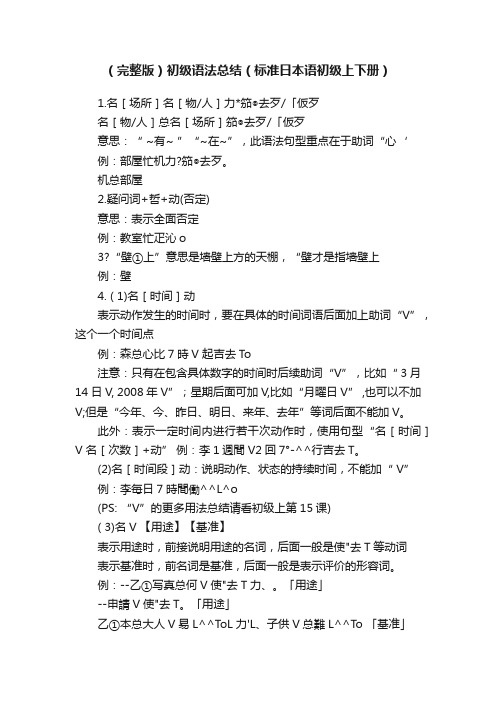
(完整版)初级语法总结(标准日本语初级上下册)1.名[场所]名[物/人]力*笳◎去歹/「仮歹名[物/人]总名[场所]笳◎去歹/「仮歹意思:“ ~有~ ”“~在~”,此语法句型重点在于助词“心‘例:部屋忙机力?笳◎去歹。
机总部屋2.疑问词+哲+动(否定)意思:表示全面否定例:教室忙疋沁o3?“壁①上”意思是墙壁上方的天棚,“壁才是指墙壁上例:壁4. ( 1)名[时间]动表示动作发生的时间时,要在具体的时间词语后面加上助词“V”,这个一个时间点例:森总心比7時V 起吉去T o注意:只有在包含具体数字的时间时后续助词“V”,比如“ 3月14 日V, 2008年V”;星期后面可加V,比如“月曜日V” ,也可以不加V;但是“今年、今、昨日、明日、来年、去年”等词后面不能加V。
此外:表示一定时间内进行若干次动作时,使用句型“名[时间]V 名[次数]+动” 例:李1週間V2回7°-^^行吉去T。
(2)名[时间段]动:说明动作、状态的持续时间,不能加“ V”例:李毎日7時間働^^L^o(PS: “V”的更多用法总结请看初级上第15课)( 3)名V 【用途】【基准】表示用途时,前接说明用途的名词,后面一般是使"去T等动词表示基准时,前名词是基准,后面一般是表示评价的形容词。
例:--乙①写真总何V使"去T力、。
「用途」--申請V使"去T。
「用途」乙①本总大人V易L^^ToL力'L、子供V总難L^^To 「基准」X —X—力*近乙買⑴物V便利^T o 「基准」(4)动(基本形) OV 【用途】【基准】:使用与上述( 3)一样例:乙O写真求一卜总申請T^OV 使"去T。
^OV>^3>^ 買“物T^OV 便利^To(5)小句1 (简体形)OV,小句2:名/形動+肚+OV表示在“小句1 ”的情况下发生“小句2”的情况不符合常识常理,翻译为“尽管…还是…,虽然…但是….”,g前一般不用敬体形例:目覚、今朝总起吉尢。
《新版标准日本语初级》TXT课文+笔记。第18课
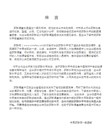
小野:もうすぐ 六時に なりますから、タイムサービスが 始まります。
李:タイムサービス?
小野:ええ、今から 七時まで もっと 安く なります。さあ、行きましょう。
◎ 息子は医者になりました。
(儿子当医生了。)
◎ 来年社会人になります。
(明年将成为社会的一员。)
4、二类型/名 にします
和本课“语法解释2”的情况相同,这个句型表示因主语的意志性的动作,作用等而引起事物发生变化。
◎ 部屋をきれいにしてください。(请把房间打扫干净。)
◎ 会議室を禁煙にします。(会议室里禁烟。)
乙:はい。できるだけ軽くします。
C
甲:お嬢さんはおいくつですか。
乙:今年七歳になりました。
D
甲:あのう、ちょっとうるさいですよ。
乙:あっ、すみません。静かにします。
▲语法知识▲:
1. 一类形 なります
日语的一类形容词表示静止的状态,通常不表示变化。但是,可以用“一类形容词+なります”的形式来表示性质或状态的变化。其构成方式是把一类形容词的词尾“い”变成“く”,再加“なります”。
◎ だんだん 暖かく なります。(天气渐渐转暖)
◎ 携帯電話は 小さく なりました。(手机变小了。)
◎ パソコンは安くなりました。(个人电脑便宜了。)
2、 一类型 します
“一类形容词+します”用于因主语的意志性动作,作用而引起事物发生变化的场合。其构成方式是把一类形容词的词尾“い”变成“く”,再加“します”。
◎ コーヒー と 紅茶 と どっちが 好きですか。(咖啡与红茶,更喜欢哪个?)
―紅茶の ほうが 好きです。(更喜欢红茶。)
《新版标准日本语初级》TXT课文+笔记。第45课

②食べれば食べるほどおいしいです。(越吃越好吃)
③声は高ければ高いほど、元気が出てきます。(声音越大越能打起精神)
*如果是形容词的话有两种接续:“词干+なら+词干+なほど”或者“词干+であれば+词干+なほど”。
例:①静かなら静かなほど勉強にいいです。(越安静越有利于学习)
*接续:简体型或敬体型均可。但要注意形容词词干和名次后要加“だ”,敬体时用“です”
*意义:表示几个相同事项的并列。
例:①李さんは頑張っているし、能力もあるし、いい人ですね。(小李又努力又有能力,是个好人)
②牛丼は手軽だし、うまいし、よく食べます。(牛肉饭又便宜又好吃,我经常吃)
③この辺は交通の便もいいし、家賃も安いし、住みやすい。(这一带交通又方便,房租又便宜,很适合居住)
◆ずっと本を読んでいたので、目が疲れてきました。(一直在看书,眼睛累了。)
◆お母さん、雨が降ってきたよ。(妈妈;并列的叙述几个事项",し前面可以是简体型,也可以是敬体型。另外,"小句1,小句2"的主语が多用も代替..(
◆休みだし、天気もいいし、どこかに出かけませんか。(今天休息,天气也不错,去哪儿玩儿玩儿吧?)
◆少子化が進んで、日本の人口はだんだん減っていくでしょう。(孩子减少现象日益加剧,日本的人口将会越来越少吧。)
◆最近、中国へ旅行に行く日本人が増えてきましたね。(最近,到中国旅行的日本人多起来了。)
2.动+てきました[出现]
除这外句型还有表示某种状态的开始或者出现,不过,只限于前面接动词的非意志型。
新标日初级学习笔记11-13课
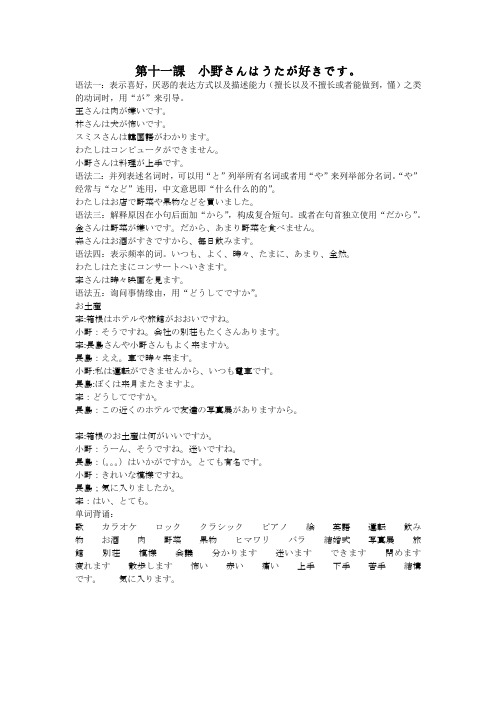
第十一課小野さんはうたが好きです。
语法一:表示喜好,厌恶的表达方式以及描述能力(擅长以及不擅长或者能做到,懂)之类的动词时,用“が”来引导。
王さんは肉が嫌いです。
林さんは犬が怖いです。
スミスさんは韓国語がわかります。
わたしはコンピュータができません。
小野さんは料理が上手です。
语法二:并列表述名词时,可以用“と”列举所有名词或者用“や”来列举部分名词。
“や”经常与“など”连用,中文意思即“什么什么的的”。
わたしはお店で野菜や果物などを買いました。
语法三:解释原因在小句后面加“から”,构成复合短句。
或者在句首独立使用“だから”。
金さんは野菜が嫌いです。
だから、あまり野菜を食べません。
森さんはお酒がすきですから、毎日飲みます。
语法四:表示频率的词。
いつも、よく、時々、たまに、あまり、全然。
わたしはたまにコンサートへいきます。
李さんは時々映画を見ます。
语法五:询问事情缘由,用“どうしてですか”。
お土産李:箱根はホテルや旅館がおおいですね。
小野:そうですね。
会社の別荘もたくさんあります。
李:長島さんや小野さんもよく来ますか。
長島:ええ。
車で時々来ます。
小野:私は運転ができませんから、いつも電車です。
長島:ぼくは来月またきますよ。
李:どうしてですか。
長島:この近くのホテルで友達の写真展がありますから。
李:箱根のお土産は何がいいですか。
小野:うーん、そうですね。
迷いですね。
長島:(。
)はいかがですか。
とても有名です。
小野:きれいな模様ですね。
長島;気に入りましたか。
李:はい、とても。
单词背诵:歌カラオケロッククラシックピアノ絵英語運転飲み物お酒肉野菜果物ヒマワリバラ結婚式写真展旅館別荘模様会議分かります迷いますできます閉めます疲れます散歩します怖い赤い痛い上手下手苦手結構です。
気に入ります。
第十二課李さんは森さんより若いです。
语法一:比较!名词后面接“より”,表示比较基准。
中国は日本よりずっと広いです。
日本より中国のほうがずっと広いです。
《新版标准日本语初级》TXT课文+笔记。第12课
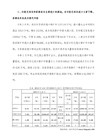
▲语法知识▲:
1. 名1は 名2より 一类形/二类形です
比较“名词1”和“名词2”,“名词1”比“名词2”更具有形容词所表示的性质时使用这个句型。
◎ 李さんは 森さん より 若いです。(小李比森先生年轻。)
◎ 中国は 日本 より 広いです。(中国比日本辽阔。)
◎ 上海は 北京 より にぎやかですか。(上海比北京热闹吗?)
在某个范围内,表示“名词2”最具有形容词的性质时使用这个句型。“名词1”为表示“名词2”所属范围的名词。
◎ スポーツ の 中で サッカー が いちばん おもしろいです。
(在各种体育活动中,足球最有意思。)
◎ 日本料理 の 中で 寿司 が いちばん おいしいです。
(日式饭菜中,寿司最好吃。)
被选择的事物已见于上下文或存在于眼前时,使用“どの ~が”或“どれが”,反之则使用“何が”。
◎ リンゴ と ナシと バナナの 中で どれが いちばん すきですか。
(苹果、梨和香蕉当中你最喜欢什么?)
◎ 果物の 中で 何が いちばん 好きですか。(水果当中你最喜欢什么?)
◆应用课文◆:お酒と お茶
◎ 北京 より 東京 の ほうが 暖かいです。(与北京相比,东京更暖和。)
◎ 大阪 より 東京 の ほうが にぎやかですか。(与大阪相比,东京更热闹吗?)
3、 名1は 名2ほど 一类形く ないです /二类形では ありません
比较“名词1”和“名词2”,“名词1”比“名词2”更不具有形容词的性质时使用这个句型。句尾必须使用否定形式。
◎ 東京の 冬は 北京の 冬 ほど 寒 く ないです。
(东京的冬天没有北京的冬天那么冷。)
◎ 神戸は 大阪 ほど にぎやか では ありません。
标准日本语初级上下册超详细总结笔记
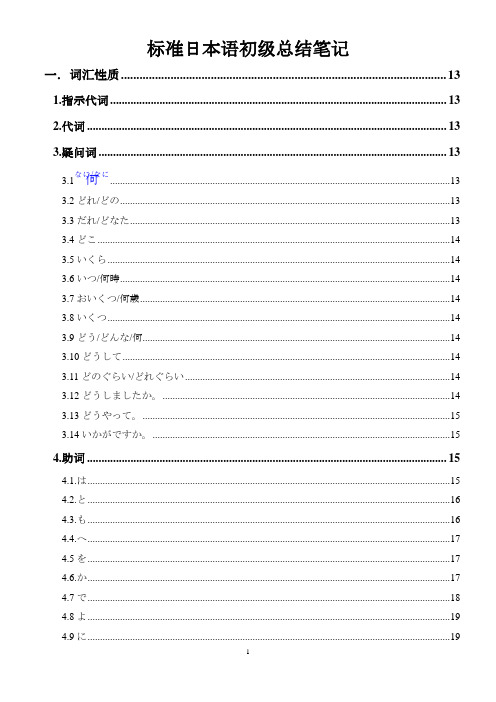
标准日本语初级总结笔记一.词汇性质 (13)1.指示代词 (13)2.代词 (13)3.疑问词 (13)3.1何なに/なに (13)3.2どれ/どの (13)3.3だれ/どなた (13)3.4どこ (14)3.5いくら (14)3.6いつ/何時 (14)3.7おいくつ/何歳 (14)3.8いくつ (14)3.9どう/どんな/何 (14)3.10どうして (14)3.11どのぐらい/どれぐらい (14)3.12どうしましたか。
(14)3.13どうやって。
(15)3.14いかがですか。
(15)4.助词 (15)4.1.は (15)4.2.と (16)4.3.も (16)4.4.へ (17)4.5を (17)4.6.か (17)4.7で (18)4.8よ (19)4.9に (19)4.10が (20)4.11でも (21)4.12の (22)5.副词 (22)6.叹词 (28)7.接续词 (29)二.时态/形态 (31)1.动词 (31)1.1时态 (31)1.2形态 (31)1.3自动词与他动词 (34)2.形容词 (34)2.1.时态/形态 (34)2.2.形容词修饰名词 (35)2.3.形容词の并列 (35)2.4.形容词→副词 (36)2.5形容词→名词 (36)2.6.形容词の变化形 (36)三.词法 (38)1.会社員・社員「1」 (38)2.上うえ/下した/前まえ/後うしろ/隣となり/中なか/外そと/左ひだり/右みぎ「2」 (38)3.~ごろ「4」 (38)4.家いえ/うち「6」 (38)5.さっき/たった今「8」 (38)6.前に「时间」「8」 (39)7.表示程度的副词「9」 (39)8.表示频率的副词「11」 (39)9.用よう「9」 (39)10.世界中せかいじゅう「10」 (39)11.形容词+の「10」 (39)12.最近「12」 (40)13.駅前「13」 (40)14.お金を下ろします「14」 (40)15.無理をしてはいけません「15」 (40)16.薬を出します (40)17.~中じゅうに ................................................................................................................... 40 18.声こえ/音おと (41)19.3割わり引びき (41)20.似に合あう (41)21.何+量词+も+肯定 (41)22.~のところ (41)23.あたり/辺 (41)24.通う/行く (42)25先 (42)26楽しみです (42)27.~でいっぱい (42)28.でできた (43)29.ほど/ぐらい (43)30.それにしても (43)31.あちこち (43)32.もったいない (44)33.何かあった (44)34あと~ (44)35.どの家でも (44)36.名のとおりに (44)37.数量词は~ (45)38とにかく (45)39数量词+とも (45)40参りました (45)41.巻まき込こまれて (45)42~に似ています (45)43.点动词/持续动词 (46)43.1までに/まで (46)43.2間に/間 (46)四.句型 (47)1.判断句「1」 (47)1.1......は......です。
新版标准日本语初级上册课堂笔记
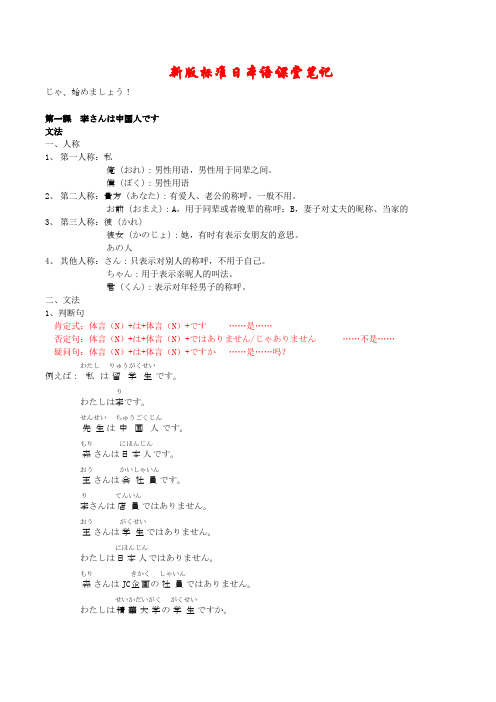
新版标准日本语课堂笔记じゃ、始めましょう!第一課 李さんは中国人です 文法 一、人称1、 第一人称:私俺(おれ):男性用语,男性用于同辈之间。
僕(ぼく):男性用语2、 第二人称:貴方(あなた):有爱人、老公的称呼,一般不用。
お前(おまえ):A ,用于同辈或者晚辈的称呼;B ,妻子对丈夫的昵称、当家的3、 第三人称:彼(かれ)彼女(かのじょ):她,有时有表示女朋友的意思。
あの人4、 其他人称:さん:只表示对别人的称呼,不用于自己。
ちゃん:用于表示亲昵人的叫法。
君(くん):表示对年轻男子的称呼。
二、文法 1、判断句肯定式:体言(N )+は+体言(N )+です ……是……否定句:体言(N )+は+体言(N )+ではありません/じゃありません ……不是…… 疑问句:体言(N )+は+体言(N )+ですか ……是……吗?例えば:私わたしは留学生りゅうがくせいです。
わたしは李りです。
先生せんせいは中国人ちゅうごくじんです。
森もりさんは日本人にほんじんです。
王おうさんは会社員かいしゃいんです。
李りさんは店員てんいんではありません。
王おうさんは学生がくせいではありません。
わたしは日本人にほんじんではありません。
森もりさんはJC 企画きかくの社員しゃいんではありません。
わたしは精華大学せいかだいがくの学生がくせいですか。
いいえ、違ちがいます。
/ いいえ、精華大学の学生ではありません、会社員です。
2、体言(N )+の+体言(N )A 、前者是后者所属的机构、单位、国家;B 、表领属关系、及状况属性、同位等。
例えば:田中たなかさんは東京大学とうきょうだいがくの教授きょうじゅです。
JC 企画きかくは日本にほんの会社かいしゃです。
王おうさんはジェじぇーシしー企画きかくの社長しゃちょうです。
わたしは精華大学せいかだいがくの学生がくせいです。
小野おのさんの傘かさ李りさんのラジオらじお私わたしの机つくえわたしの手帳てちょう先生せんせいの雑誌ざっし第二課 これは本です 文法1、方(かた):礼貌用语、丁寧語(ていねいご) 例えば:あの方は先生です。
标准日本语初级上册语法总结[1]
![标准日本语初级上册语法总结[1]](https://img.taocdn.com/s3/m/739909ec551810a6f5248698.png)
日语初级上册语法总结㈠日语常用的词汇分类及用法:1 名词:在句子中作主语,谓语,宾语,定语(名词+の名词)。
2 形容词:定语,谓语。
3 形容动词:定语,谓语。
4 动词:定语,谓语。
5 副词:可做状语,修饰动词,形容词,形容动词。
6 助词:相当中文里的助词,用于说明一个句子或一个词,与其它句子或词的关系。
㈡动词的分类及「て形」、「ない形」、「た形」的变形规则。
动词的分类:1动词「ます形」的最后一个假名以「い」段假名结尾时,则为一类动词例えば:買います立ちます走ります読みます遊びます死にます書きます泳ぎます行きます話します2动词「ます形」的最后一个假名以「え」段假名结尾时,则为二类动词。
其中有一部分特殊的二类动词(它们看起来类似一类)信じる起きる浴びる着るできる見るいる降りる借りる足りる例えば:食べます出かけます鍛えます起きます浴びます着ますできます見ますいます降ります足ります借ります(部分特殊的二类动词)3通常情况下是两个汉字加上します,也有两个汉字加上一个假名再加上します,或者全部是片假名情况,除此之外还有一个「来ます」这种类型的动词则为三类动词。
例えば:運動します復習します練習します買い物しますクリックしますチェックします动词「て形」的变形规则:1一类动词:①动词「ます形」的最后一个假名以「い、ち、り」结尾时,将它们改为「って」買います買って立ちます立って走ります走って②动词「ます形」的最后一个假名以「み、び、に」结尾时,将它们改为「んで」読みます読んで遊びます遊んで死にます死んで③动词「ます形」的最后一个假名以「き」结尾时,将它改为「いて」書きます書いて④动词「ます形」的最后一个假名以「ぎ」结尾时,将它改为「いで」泳ぎます泳いで⑤行きます行って⑥話します話して2二类动词:直接去掉「ます」加「て」食べます食べて出かけます出かけて鍛えます鍛えて起きます起きて3三类动词:直接去掉「します」加「して」。
《新版标准日本语初级》TXT课文+笔记。第13课

※:“7人”也可以读作“しちにん”
※:上表只是1~10和几个常用量词的搭配表。
——この 動物園には 象が 二頭 います。(这个动物园内有两头大象。)
——友達に 猫を 一匹 もらいました。 (从朋友那里得到一只猫。)
2、名 [ 时间 ] + 动
表示时间数量的词语和动词一起使用时,说明动作、状态的持续时间。这时候表示时间数量的词语后面不能加“に”。
——李さんは 毎日 七時間 働きます。(小李每天工作7小时。)
——午後 郵便局 へ 荷物を 出し に 行きます。
(下午去邮局寄包裹。)
——小野さんは プール へ 泳ぎ に 行きます。
(小野女士去游泳池游泳。)
——李さんは わたしの 家 へ 遊び に 来ました。
(小李来我家玩了。)
6、名 [ 数量 ] + で
用于不称重量而以数个的方式售物。
小野:わたしも よく 来ます。
(对店员)
森:あのう、すみません。
とりあえず 生ビールを 3つ お願いします。
(一边看菜单)
李:生ビールが 1杯 300円ですか。
森:ここは お酒も 食べ物も 安いです。
焼き鳥は 5本で 400円 ですからね。
小野:唐揚げや 肉じゃがは 1皿350円です。
——卵を 一個 食べます。 (吃一个鸡蛋。)
——本を 二冊 買いました。 (买了两本书。)
新版标准日本语初级笔记

新版标准日本语初级笔记日本语是一门美丽而复杂的语言,它有着独特的语音、语法和词汇,因此学习日语需要耐心和毅力。
在学习日语的过程中,掌握基础知识是非常重要的。
本文将针对新版标准日本语初级课程的内容进行笔记,希望能够帮助大家更好地学习日语。
首先,我们来看一下日语的基本语音。
日语的音节结构相对简单,主要由元音和辅音组成。
在发音时,要注意清晰地发出每个音节,尤其是一些特殊的浊音和清音的区分。
同时,日语中的长音和短音也需要特别注意,因为它们会改变单词的意思。
其次,日语的基本语法也是学习的重点之一。
日语的句子结构和词序与中文有很大的不同,需要我们进行适应和学习。
例如,日语中的主语、谓语、宾语的顺序与中文相反,这是初学者容易混淆的地方。
另外,日语中的动词变位和敬语也是需要重点掌握的内容。
除了语音和语法,词汇也是学习日语的重要部分。
日语中的词汇丰富多样,有很多词汇是与日本文化和习俗相关的。
因此,在学习词汇的过程中,我们不仅要掌握基础的日常用语,还要了解一些常见的文化词汇和习惯用语。
在实际的学习过程中,我们可以通过多种途径来提高日语水平。
除了课堂学习外,我们还可以通过阅读日语书籍、听力练习、口语交流等方式来巩固所学知识。
此外,利用一些在线资源和学习工具也是很有效的方法,比如日语学习网站、手机应用程序等。
总的来说,学习日语是一个需要持之以恒的过程,需要我们不断地积累和提高。
通过系统的学习和多种方式的练习,相信大家一定能够掌握好日语的基础知识,为以后的深入学习打下坚实的基础。
希望大家能够在学习日语的道路上不断进步,早日达到自己的学习目标。
以上就是关于新版标准日本语初级课程的笔记内容,希望对大家的学习有所帮助。
祝大家学习进步,早日掌握好日语!。
《新版标准日本语初级》TXT课文+笔记。第21课
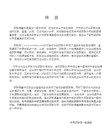
李:ええ、いいですよ。
小野:じゃあ、早く行ってお弁当を買ったほうがいいですね。
(看完歌舞伎后,小李很兴奋)
李:言葉は分りませんでしたが、とてもよかったです。
小野:そうですね。課長に感謝しましょう。
李:ええ。京劇もいいですか、歌舞伎もすばらしいですね。小野さんは京劇を見たことがありますか。
◎ 私はすき焼きを食べたことがあります。(我吃过日式牛肉火锅。)
◎ 北京へ行ったことがありますか。(你去过北京吗?)
——いいえ、一度も行ったことがありません。(没有,一次也没有去过。)
——いいえ、ありません。(不,没有。)
3:动[た形] 後で、~
表示一个动作在另一个动作之后发生时,使用这个句型。
基本课文
1:私はすき焼きを食べたことがあります。
2:李さんは会社が終わった後で、飲みに行きます。
3:もっと野菜を食べたほうがいいですよ。
4:窓を閉めましょうか。
A
甲:お寿司を食べたことがありますか。
乙:いいえ、一度もありません。天ぷらは食べたことがあります。
B
甲:この資料を見てもいいですか。
小野:少し急ぎましょうか。遅れないほうがいいですから。
李:そうしましょう。ところで、小野さんはよく歌舞伎を見ますか。
小野:仕事の後で、何度か見に行ったことがあります。
(一边走一边看票)
終わりは9時過ぎですね。食事はどうしますか。
李:歌舞伎を見た後で、食べますか。それとも、見る前に何か食べますか。
小野:いいえ、一度もありません。いつか見たいですね。
初级日本语笔记(Primary Japanese notes)

初级日本语笔记(Primary Japanese notes)On the basic type of Clause 6.6.1... The... IsExample: This is a dry (clothes).This clothes.For example, the general (front position: Prince of , (this) it (GE)6.2... The... Are youExample: it is a dry (clothes).This is this clothes?6.3... What time is it?Example: This is what you areThis article 么?6.4... The... In thereFor example: (present) on the desk (table) (also).桌子 has on the BlackBerry.6.5... The... To youExample: the room (one).Yako no Sato.(the equation is the end of time is the end of time , formula for there is no life exists , Yu 东西)(Yu has existed for life.6.6... In... (it is)Example: desk and chair in the room (chair). Yako village has 桌子还有 chair and so on and so forth.Radio radio in the room is available. Yako Yayu Shu Ping village.6.7... In... That isExample: the cat on the chair (CAT).Cat on the chair has only.There is one body, one 处有 and worldly life.6.8... In... There areExample: if there is a pot.Li Na has this water bottle?6.9... In... I have noExample: No, this is in the pot, the pot.He has ,这里 having water bottle.(这两个句 child 一般用于对话.)6.10... In... There are several?Example: the room was on the desk (table) is a number (number). The village has a 几张桌子 shop?(the number is a number. Some thinking.6.11... And... Such asExample: there is a note book, note there are.Da Arimoto has 书还 village in children.(强调.6.12... The... So there is noExample: the school (was) not这里 school absence.Yes, it is.I am lonely is ,.No, that's not (difference).This is not the ,.6.13... ...The display of the contents of the shift 动性 focusing 经过, 动等.Example: every morning, I (Maia) home at seven (JO) () ()I get up at 每天七点离开家.6.14 at nominal (0.5 to 6.15 lyrics)Example: at seven o'clock.Ryo 已经 seven points.Table 一个状态转向另一个状态)6.16... The... But...I (have) (to) (well) as well.I can 饭 Association.(YuExpress one's feelings, feelings, talents, wishes, possession, needs, possibilities, etc6.17. B by A in this U... I wasExample: yesterday by this today of summerheat (I was feeling thou live).It's more hot today than it was yesterday.(compared with B, A is more...)6.18. A is B by this... I wasExample: China (UTI complete period): Japan Hiroshima () by this I live in.China is larger than japan.(A is better than B...)6.19... U (yo u) and Si (and MOO) Che ~ masu (first person)... U () after the last Si ~ masu (third person)3 think... The psychology of a speaker when he speaks4 a period of time when speaking5 questions with second personExample: the future (. J u RA Che), teachers (with j u - U.) in and Che Si ~ masu.I want to be a teacher in the future.Father (): sweet sweet home () or (KA) and buy complete and at last after thinking che (see the construct) (Ayumi) with hyperplastic ma.Father wanted to buy a good house and saw a lot of places.Thou - ta wa (University of nursing, on the Hai (HAI)) in the U and Si Hai ~ masu ka.Do you want to go to college?6.20. words (verb) + was still in shape evenI was independent of NOUNCommonly used in spoken english... I was on(used of an explanation or explanation of facts or reasons or according to the necessary results)For example: in the day (better): rain (thou will drop), (examples) after the ICDRG: I was in.It rained that day.6.21... You told me I was this childPlan to do...(I was feeling with this child node sentence is available when the first person)Example: students (U, J. On the estate of Che) (), when the doctor (woman Che Chan) in the analysis of this special issue on Naru moo.When I was a primary school student, I wanted to be a doctor.6.22. + tameniTable objective. An attributive can be either a noun or a verbExample: - cancer of tameni or Japanese ('s ki j u reluctantly). At last the ~ masu ka.What do you study Japanese for?6.23... Wa... And ('s words / language and sweet ~ masu)(indicating something can be said to be...)Example: language of CHO () of the former (Na ~ forms), and that is: Tel Chan ('s words / language and sweet ~ masu).The town is called [Hongqiao].6.24... (wa... In)... Sweet words and ~ masu(sb) (to sb) say...Example: Japanese: towards (National People (actually) better and will (in): when thou) after () on the wa yo u and last period "and said the ~ masu Che ~ masu.On the morning of Japanese met the person said: "yo u, ha ~ masu last period".6.25... O... Sweet words and ~ masu(handle... It's called...For example: Japanese: CIECC terms or national feeling of leaf thou che (Language and speech) and sweet words ~ masu.Call it "greetings" in japanese.6.26... What... O... In line with the ~ masu (to ~ masu)(said: come in and said to places)Example: Tokyo: what has been resolved in hyperplastic to Ma ka.What do you want to do in Tokyo?6.27... Hai Hai (Hai yo) speech(as long as... Just fineExample: language terms: U I live in here, sweet speech made me cry.How do you do it well?6.28... Scarlett and sweet ~ masu... And think you taught Ma hyperplastic (Si after the last ~ masu(node sentence is the main general guys for woman.)(in sentences, the subject can be the speaker and also the third person)Example: today is last day (at last, with cancer) and that over the last ~ masu.I think it's a fine day today.Tanaka San: today is the rain, drop in and Si Hai Ma hyperplastic.Mr. Tanaka thinks it's going to rain today.6.29... (on continued) before ():... (hyperplastic) after (in)(... Before)(... After)For example: on the phone. As before (in cancer (woman) in guys) that kind of estate of Ma hyperplastic.Call each other before you go.The meal period (Wa's) or food () in: after barely ~ masu.Study after dinner.6.30... J u wont.After all types of termination, they mean "guess", meaning "probably"... Right?".Example: language and woman in winter is cold () (National - live in better) on the j u. It's probably not cold this winter.This thou ~ 6.31... Have a sweet[this] thou ~ and a negative form of "Na Hai. Ma's estate] echo, said" less..." Italy.Example: the summer of Shanghai (aka Zu) is actually this summer (Ma Zu Na Hai de thou) on here. It's not too hot in summer in Shanghai.6.32... By this... In, u...This is the emphatic sentence of comparative sentence, meaning "and"... Compare,... (of a party) more...".Example: to construct, on this immediate of yo u, u (TA KA) live in high I. Compared to oranges, grapes are more expensive.6.33... For... For... NadoMeaning:"... ... ... Wait"Example: in a moviola, Ting Park, nado thou this ~ masu. There are cinemas, parks, etc in the city.Department of the Tokyo, lumira. Noyes of: Tanaka San of house in this thou ~ masu. The TV set, the radio, etc. are all in Tanaka's room.6.34. question word + moo... Negative expressionExpressing total negation means "nothing", "nothing"".Example: in terms of child nursing in Wa Hai Ma's estate. There is no one in the room.Hai Hai forms, in this thou ~ - on child's estate. No, nothing at all.6.35... Moo... Moo[moo] superposition, containing"... And... All..." Italy.Example: three years old was also Lee San San Wang moo moo. Xiao Li and Xiao Wang are both junior students.The cat () dog (last good) moo moo Hai Ma's estate. Neither cats nor dogs.6.36... (Japanese) tameni, 6.37...The word "body" or "verb" terminates the form, which means "purpose"..." Italy.Example: the forms of attack and or in tameni cleaning or hyperplastic ma. / in order to welcome the new year, we did a thorough cleaning.The father of tameni and buy wine or sweet ~ hyperplastic. My father bought / wine.6.38... Language and in hyperplastic ~.After the verb is connected to the figureDecision made by the first person. (first person) decision...".For example: to travel on the language and in hyperplastic ~. / (I) decided to go on a trip.In Japan and the forms of attack or in language and in hyperplastic ~. / (I) decide to spend the Spring Festival injapan.6.39... Ka... Have a sweet[]. As with a negative response, said sure, meaning "only...".Example: the court on a wood, woman, Thou soul of Ma's estate. There is only one tree in the yard.Mother: woman, sweet flowers and buy estate in hyperplastic ~ cancer. Mum only bought (fresh) flowers.6.40... You told me I was this childAfter the verb is connected with the figure, mean the intention. (first person) intend to...".Example: Sunday, after much better on the beauty of this child was still feeling hugh. I'm going to have a good rest on Sunday.The car has to buy this feeling I was a complete child. I plan to buy a car.6.41... Na, RA, 6.42...When the verb is used together, it means that the action is simultaneous. On one side... One side...".Example: tea or drink, and construct the Na ra te, or see the ~ masu noyes. Watch TV while you're having tea.Travel or woman, kind of sweet -, buy things or feeling this was still on continued moo. I plan to do some shopping while I'm playing.6.43... Sense (as on), on continued[] he made on continued general verbs (... Or on continued,) means "do" and "dry". But for the representation of human perception (taste, smell, hearing, intuition, etc.) [] on continued to do automatic word collocation and nominative use, []. [] on continued, sense of meaning "... "Feel", "feel"..."Example: sweet sweet feeling, ~ masu. It feels good.Last, have a sense of ~ masu GA. I find it offensive.6.44... For this... For this on continued[for] this is connected to the verb form (five verb form, sound) and adjective [Ka], describe the shape after a verb form [after] said that over, alternating action or state appear alternately, meaning "or... Or..." "For a while."... Awhile...". ,Yamashita: for example: after this to this woman at Ta Ta Hai ~ masu. Move back and forth under the hill.For this summer, after cold, after this TA ~ masu. It's cold and hot.Good for this kind of flying with nursing with nursing after this was still last for. I like it and hate it for a while.Adjectives and adjectival verbs in the sentence, [for] this available [on continued], also available in Japanese] [nursing, the end of the sentence.6.45... In ~ ~When the word is spoken, it means that it is "original"...". Translation is often flexible.Example: this period or skin cancer () of ~ ~ (for food) ~ masu. Eat apples with skin.Boots () of Ma Ma De: () after, in the case of. The shoes went into the house without taking off.6.46... Hyperplastic and RA[and] kind of hyperplastic is composed of [+] and on continued follow-up [TA RA], meaning "if... The term "pure" refers to a purely hypothetical condition and is generally used at the end of the simplified sentence.Li, for example: after TA and RA hyperplastic, u in U J. What will happen if Xiao Li is there?Sweet10 million yen (to you) , and what we used to do. Day starter book 10 million yuan, you get a 假如 lavori parties for you as 么, come from?6.47... IsApplication 词连 contact body which 强调 action after starting ,说明 (or missing. It's essential 变成.Example: the (best) is the most important thing. And the most important 书是东西., more than six hours sleep a lot of recovery. More than 6 个小 deductible hope no sleep can 复的 Hui , is big.6.48... By up to ByNominal contact after , display data, such as no reason ,须灵译 active transcription.Example: class level (put). Ryo 据水 root axis.People are different. A person or cause 而异.This is (not) (by accident). The accident caused by roughness of this substance and mind.6.49... (before)At the end of the Chinese 样 no 论句谓语时态,一律接在动词原形之后, display "in... Before ".Example: the food (that) (to) (to) (washing). And then 饭前finish washing hands.Before I sleep , wind () () (). And a main washing 个澡 before bedtime.6.50... And... (a) in the , 6.51 (either)...This is 一个比较选择句型 section, and before one is nominal, verbal 终止 is good. In a word, and then type the men before. Not before. And this can not , thumbs up "... And... Phase ratio (even if what's ,)... ".Example: fish and meat (FISH) (and) , which do you like better? Meat and 鱼与 phase ratio , you further 欢吃么 comic story?Red and white, and in which , clean? What's the color ratio and 红色 Wajiro drift to further , Ryo?No doubt about 6.52 问词 plusPositive or negative over the entire surface of the display ,thumbs up this "no 论... Metropolitan... ".Example: full (Anywhere). No man or 论哪儿都满为 disease (满guests).There is nothing. By no 论) 么都 utensil has died.6.53... IfContact 动词连用 (五段动词音便形), and said to the empress 词连 form. This will display ,让步 conditions , "Jishi...Tatsuya... "Example: don't break it. Ryoya Jishi formation and resting.Want to buy high. And the main 买 Jishi 贵也.6.54... SoUsing the contact form 词连 empress "image display ,... 一样地 "thumbs up our ,译时应灵 active 处理.Example: you like Mr. Tanaka said. Study on said in 样做 teruta Na.As can be seen from the above , gold () () a lot of potatoes. As a positive, practical ability 从这 clear that come ,一样 Kaneko tsuneshige 东西 manner.6.55... If you have notContact 动词 imperfective form after , "thumbs up to this 须...".Example: we are a foreign language (Bilingual) study should be allowed.We must study hard at foreign languages.Is on the line, as two terms at this speech - Ma's estate. Have to go.6.56... On and after theWhen the word is spoken, it means "yes"... Speaking".Example: students in the "big and flying, the child was also cut in two. Books are important to students.In the world and the life in the water after, is necessary to have a child. I was. For mankind, water is essential to life.6.57... And the womanWhen the word is spoken, it means "act"...".Example: students (this complete, on the estate and the woman cannot live) and their head line with hyperplastic ~. / went to Germany as an international student.For as for the woman and a test of forms, actually this ~ masu.A child has the idea of being a little child.6.58... a partyWhen the verb is connected, it means "on the one hand"... On the other hand...".Example: will increase the population: CIECC, live in forms of a party, population reduction, Tian: CIECC (:) after the last ~ masu. On the one hand, the population in the city is increasing; on the other hand, the population in the countryside is decreasing.I will praise in a party, the vicious mouth (in words or guys UTI) U. On the one hand, say nice things, on the other hand, speak ill (singing in the face and slander behind your back).6.59... The wa Na RA Na HaiWhen the verb is used in conjunction (the five verb turns into shape), it means "no"..." Italy.Example: Event - language and I wont forget Kara, this is the two terms of Ma's estate. Because it is very important, so do not forget.The woman has malignant sweet language and wa Na RA Na hai. / not to do bad things.In addition, the "Ha Na ra - Hai" can also be connected with "live" in - "-" on the infinitive, constitute "- on the wa - ra - the last sentence", meaning "indispensable".Example: air and earth is in the wa Na Na Na on the last child was still kind of. Air is indispensable to human beings.After the 6.60. down... Have a sweetAfter the woman down the "Adverb" must be used with a negative response, meaning "never...".Example: after the sunset. In terms of child nursing, guys - sweet words. Never tell anyone.After the woman is at grace period to forget ~ estate's terms. Your kindness will never be forgotten.6.61... Language and, in with.When the verb is connected with the shape of the body (the five paragraph of the verb, the shape of the sound), it means "yes", meaning "yes"..." Meeting...".One was for example: on the language and, in with the ~ masu.I can go alone.Japanese toilet paper (in the book, or on the language and construct), was with Ma's estate. I can't write in japanese.6.62... (TA) language and GA ARUWhen the verb is used in conjunction (the five verb turns into shape), it means "once."...".For example: Japan in the case of language and, after this thou ~ masu. I have been to japan.In the University in front in the Japanese into, or barely hyperplastic language and is actually much of Ma's estate. Never studied Japanese before entering the university.6.63... In the control.When the word is spoken, it means "yes"...".Example: the world is in the environment for environmental responsibility or to ta - at this estate's speech - terms of ma. Man must be responsible for the environment.AndFor customers to use polite language. Use the Japanese guests 对顾 bu.6.64... In theContact form of 动词连体 empress , display that is formed 结果观自 guests or customers of this nature will define , (变得)... " "(except for the first person) is determined...".Example: , do not know will not come. The position and effect on the road is the guide of , nature is not coming.Next week (Kyoto) ,) to (business). (company) under my left Kyoto was determined.6.65... Even if... In anywayEven if the present phrase type variable as this "... Thumbs up if , form , "Jishi" (this 纵然)... Tatsuya... ".Example: if you lie , think is necessary. And I 认为,纵然 is 谎话, Yayu was necessary.Even if , would not say. And no living thing 论发 Ryo 么circumstances, can not , said.6.66... Have to doContact 动词 imperfective form after this will not , "Ruguo... Study on the guide , conduct ".Example: I should take some medicine. 药可呦 stuttering or conduct.You are not alone. Deductible (and you) is 一个人来的话, not on the line.6.67... Than... (a) , 6.68..."The original" movable contact verbs or nouns in the positive ratio of empress , denotational 较选择, "and this will... The phase ratio ,... Further, on the other hand)... ".Example: you had better not go I go by. Removing and phase ratio and , and not go further.Li you king you tall (high). And phase ratio and small 个头komomo , king also high.6.69... It is theContact 动词连用 (五段动词音便形) after ,强调conditions , will only display this "... Years old... ".Example: what is seen on my own. And only 亲自 made clear theage group.It is possible that money. Ryo has only to get a 钱办 talent.6.70... PleaseContact 动词连用 (五段动词音便形) after the display , Bu imperative , thumbs up this "please..." "... Kana ".Example: go quickly. Go and comfort. 请快.Please tell me the way to the hospital. 请告诉我 off the road and the Chinese 么走 clinic.6.71... (to)The original form of contact 动词 empress , sexual display 经常动作, thumbs up this "often".Example: you can go to travel alone. And 一个人 usually go travel.It is frustrating. And often is not 宁 insanity.6.72... May beAnd the prince of the respective contact 动词 adjective 类终locking type, name and 动词词干词之 grasp an empress ,displayed great 推测, thumbs up this "ye 许...".Example: Mr. Yamada came to Japan may have. Yamada Tatsuya 许回 Japan.If , (one)Traffic (and) may be useful. And the young are 一带的话, was 许还方 traffic service.6.73... Don'tContact 动词连用 (五段动词音便形) after , display inhibition , thumbs up this "can not..." "... Conduct ".Example: don't smoke in the bus. In public 车上 steam can not 吸烟.More from the bad , must not eat. And 已经 can be destroyed from basis as , can not eat.6.74... In the动词连体 contact form (original) after , show ofmicro-amounts of , thumbs up this "(团体, organization, etc.) is determined...". Commonly used "... "It was 时态" or ".Example: I have to go to Japan to study abroad. (school) I go to Japan study abroad is determined.This time (this time) Saturday and Sunday () (as) (how) to exercise it. The constant 六和周日开运动会 Zhou Yu.6.75... ToUse ":" "" 一般作他动词, variable in normal and 带宾,宾格 assistant 一起出现 lyrics for ", formation... The phrase "to be displayed and human feeling" to "(but this position: taste, 觉嗅觉, listen to the 觉觉 name, etc.) 一起使用时lyrics by self ,动词, nominative and assistant" Prince "is used for forming the Kazuki ,"... The phrase ".Always see "... Has a structure that:... Taste (taste) and then to... Taste. Have... Flavour.... System () to 闻到... Approaches to taste. 发出 powder... Approaches to taste.... Listen to the sounds () (in which the 传来发出)... 响voice.... Listen to the voice () (in which the 传来发出)... Voice.... (I) and 觉得.... And my... Feel.Example: plain taste of Japanese food. Japan dishes taste pale Kiyoshi.The smell of roses. Rose, memory, and 发出 flavor (incense 呀).The sound of knocking. And 响起门声 hammer.It was the children's voices. A small child or coming and voice.It makes you feel cold. 觉得 and cold.I feel funny. And my funny.The constant 语时, made in combination of the above subject often 换成 "lyrics" assistant "".Yuji: (elder sister) received from the sound of a bell. Male 二从姐姐那儿得到了一个会发出响声的小铃铛.I like the taste of the food. Miki Kiyoshi and 欢吃 taste pale manner.6.76... While"Contact" 动词 empress of ,其前 surface 动词 public need "" , display form 维持已有 ecology , thumbs up this "... The empress of kazunao (having)... ".Example: (left) to go back. The empress 一直没有回来 and go abroad.I bought this , while reading a book. And can seatI haven't read the book since I bought it.6.77... For respect toThe verb prototype means "whenever... (at the moment)".Beijing: for example: on the case of respect to Tiananmen, (the child's cancer cancer thou Plaza (better) speech) / every time I go to Beijing, go to Tiananmen square.The truth was to write or see in respect to a case, the University (nursing last) of language and thought, the last national terms ~ masu. Whenever I look at this picture, I remember College days.6.78... The KaraThe "Kara" in verb form (five verb voice form), meaning"... After".Example: Pharmaceutical () or drink on in Kara, construct the ~ masu hugh. After taking the medicine, take a rest.Eat something. Or the Kara, stroll (San ~ masu). Have a walk after dinner.6.79... (by hand) in the in terms.When the word is connected, it means "put"... Get hold of".Example: the spin off of fries - clima Noyes or hand in terms of Ma communication in hyperplastic. Got a ticket for the ballet.Na Ka Na Ka in hand into the language and, in terms of Ma's estatein paint. It's hard to get.6.80... Kara Ka Na Hai pointsAfter the end of the simplified sentence or noun, it means "don't know"...".Example: nursing students, divided into Japanese terms, as much of Ma's estate. It's difficult to know who is a Japanese student.The hospital is was divided as much as in the Aru Ma's estate.I don't know where the hospital is.6.81... Yo u / u and on continuedAfter a verb is measured, a desire or an attempt to express (the first person). Want to..." Attempt to...".For example: Japan: study in advance and complete. At last the ~ masu. I want to study in japan.Thou son of (was) a flower or. And at last longer and I was in yo u. The child / seems to want to pick flowers.6.82... At last, we are two guys liveWhen the verb is terminated, it means something that cannot be done under the restrictions of the objective conditions. Can not...".Example: the cat that over the Kara, if I live in is with guys at Ma's estate. Because it's a cat, naturally it can't speak.In the form of lumira hospital, it was a song at u guys in the election: live with Ma's estate. In the hospital, naturally, Cara OK is out of the question.6.83... And (or) than of in - kind - sweet childWhen the word is connected, it means "and"... Cannot be compared with".Example: Japanese language forms of speech: Li Hai, and of in - room than the child's estate ~ ne. I can't compare Japanese with Xiao Li (not Xiao Li's opponent).I was a child moo Kara, adults (and and -) and a child of than in Na Na Hai in j u RA. Since you're still a child, you can't compare yourself with adults.6.84... Yo u:"Yo u:" after the verb, can express a certain purpose, similar to the "tameni", meaning "to...".Example: the wind evil, or live in yo u have a lead, or pay down the national - hai. Please be careful not to catch cold. (= = be careful not to catch cold.).In combination between complete by complete as early as on a mount of Ma hyperplastic. / in order not to be late, early door.6.85... By this (MOO)"Yo (MOO) this" after the words that even the body or body language, said some suggestions for"And that is... Not... ".Example: by taking drugs (slowly) , rest is better. And 其吃 Products Merchant Association and , not at a good rest.Metro (subway) than to take a taxi go. And 其坐 out or not and so ,乘地铁去.6.86... I want youContact 动词连用 (五段动词音便形) after aspiration of the display , first-person accounts. This 一般用于上对下或对等关系的场合, thumbs up "(you)".Example: I want a faster. Hope you happy ability.As long as you want. Hope you 给我买包 smoke was coming.6.87... Must haveContact 动词, 词终 locking type or substantive adjective, 动词词干 empress , affirmative judgment 较为 display ,thumbs up this "no doubt (that)..." "(this)".Example: I wrote a letter to that person must be. And the otherbook is positive.In the experiment, which is a must have. The main 试 and positive study.6.88... We (will)"Contact" 动词 past a certain 时后, briefed on the display 种虚拟状, thumbs up this "tosaku..." "With this self...".Example: going back in time , slowly off. Self starter book iesato , times on this as soon as it is a good rest.I () () , is going with you the painting thought. And with my own 为画 is variable 鸽子, authority (I like), this is 认为乌鸦.6.89... Where"Normal" and "contact in the form of 动词 empress" , where certain 种不 with dynamic display 时宜场合, thumbs up this "(right)... No men ".Example: when , yawning was taken in photography. Under the driving of 哈欠 positive in the cartoon.(MOM) is estimated to have been , was seen by the teacher. Positive impact of the old men 瞌睡,师看 forever.6.90... Please don't。
标准日语初级超详细笔记,后附目录

1.日语假名及其发音一览平片罗平片罗平片罗平片罗平片罗假假马假假马假假马假假马假假马音音音音音______________________________________________________________________________あア a いイi うウu えエ e おオoかカka きキki くクku けケke こコkoさサsa しシsi/shi すスsu せセse そソsoたタta ちチchi つツtsu てテte とトtoなナna にニni ぬヌnu ねネne のノnoはハha ひヒhi ふフfu へヘhe ほホhoまマma みミmi むムmu めメme もモmoやヤya ゆユyu よヨyoらラra りリri るルru れレre ろロroわワwa をヲo/woんンnがガga ぎギgi ぐグgu げゲge ごゴgoざザza じジzi/ji ずズzu ぜゼze ぞゾzoだダda ぢヂji/di づヅzu/du でデde どドdoばバba びビbi ぶブbu べベbe ぼボboぱパpa ぴピpi ぷプpu ぺペpe ぽポpoきゃキャ kya きゅキュ kyu きょキョ kyoしゃシャ sya しゅシュ syu しょショ syoちゃチャ cya ちゅチュ cyu ちょチョ cyoにゃニャ nya にゅニュ nyu にょニョ nyoひゃヒャ hya ひゅヒュ hyu ひょヒョ hyoみゃミャ mya みゅミュ myu みょミョ myoりゃリャ rya りゅリュ ryu りょリョ ryoぎゃギャ gya ぎゅギュ gyu ぎょギョ gyoじゃジャ zya/ja じゅジュ yu/ju じょジョzyo/joびゃビャ bya びゅビュ byu びょビョ byoぴゃピャ pya ぴゅピュ pyu ぴょピョ pyo说明:* 拨音(ん/ツ)用“n”表示。
如:新聞(しんぶん)sinbun、民族(みんぞく)minzoku。
新标日初级语法笔记
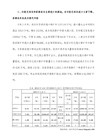
****************************
第3课
****************************
1、 ここ/そこ/あそこは名です
▲ここはデパートです。(这里是百货商店)
▲そこは図書館です。(那里是图书馆)
▲あそこはいり口です。(那儿是入口)
指示场时,用“ここ” “そこ” “あそこ”。相当于汉语的“这儿是……” “那儿是……” 和“那儿是……”的意思。所表示的位置关系与“これ” “それ” “あれ”相同。
2、名は名词[场所] です
▲食堂はデパートの七階です。(食堂在百货商店的7层)
▲トイレはここです。(厕所在这儿)
▲小野さんは事務所です。(小野女士在事务所)
表示“名词”存在于“ 名词[场所]”。※
3、名はどこですか
▲トイレはどこですか。(厕所在哪儿?)
--あちらです。(在那儿)
▲あなたのかばんはどこですか。(你的包在哪儿?)
▲駅の前に銀行がありますね。(车站前面有家银行吧)
当说话人就某事征求听话人的同意时,句尾用助词“ね”,读升调。相当于汉语的“…… 吧”。
5、疑问词+も+ 动词(否定)
▲教室にだれもいません。 (教师里谁也没有)
▲冷蔵庫に何もありません。(冰箱里什么也没有)
表示全面否定。相当于汉语的“都不(没)……” “什么也(都、没)……”的意思。
▲居間にテレビとビデオがあります。(起居室里有电视机和录像机)
助词“と”加在两个名词之间表示并列,意思相当于汉语的“和”。
3、 上 / 下 / 前 / 後ろ / 中 / 外
うえ した まえ うしろ なか そと
《新版标准日本语初级》TXT课文+笔记。第14课
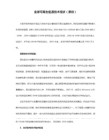
A
甲:今日の 午後は 何を しますか。
乙:図書館へ 行って、勉強を します。
B
甲:いつ 出かけますか。
乙:昼ご飯を 食べてから 出かけます。
C
甲:すみません、この 荷物を 中国へ 送って ください。
乙:船便ですか、航空便ですか。
甲:船便で お願いいたします。
D
甲:この バスは 駅前を 通りますか。
5.名[场所]を 动 [经过] [离开]
经过的场所用助词“を”表示,常用的动词有“通ります”“渡ります”“過ぎます”等。此外,“を”与动词“出ます”“卒業します”等搭配使用时,表示离开的场所。
この バスは 駅前 を 通ります。(这趟公共汽车经过车站一带。)
この 道を まっすぐ 行って、橋 を 渡って ください。(顺这条路一直走,再过那座桥。)
基本课文
2.动て 动 [相继发生]
表述两个以上的动作依照时间顺序相继发生时,可以使用“动词て形 + 动词”的形式来表示。
昨日 デパートへ 行って、買い物しました。(昨天去商场买东西了。)
家へ 帰って、宿題を します。(回家,(然后)做作业。)
図書館へ 行って 本を 借りて、家へ 帰ります。(去图书馆借书,(然后)回家。)
(2)表示“已经”的意思。
もう 遅い。(已经晚了。)
もう 帰りました。(已经回去了。)
もう 帰っても いいですか。(已经可以回去了吗?)
はい、帰ってもいいです。(是的,可以回去了。)
いいえ、まだ帰ってはいけません。(不,还不能回去。)
(3)表示“马上就要……”“快要……”的意思。
3.动てから 动 [相继发生]
新课标日语初、中级语法句型总结笔记
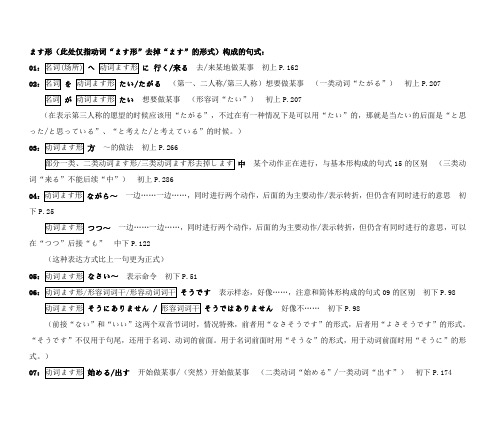
ます形(此处仅指动词“ます形”去掉“ます”的形式)构成的句式:01へに行く/来る去/来某地做某事初上P.16202をたい/たがる(第一、二人称/第三人称)想要做某事(一类动词“たがる”)初上P.207がたい想要做某事(形容词“たい”)初上P.207(在表示第三人称的愿望的时候应该用“たがる”,不过在有一种情况下是可以用“たい”的,那就是当たい的后面是“と思った/と思っている”、“と考えた/と考えている”的时候。
)03方~的做法初上P.266中某个动作正在进行,与基本形构成的句式15的区别(三类动词“来る”不能后续“中”)初上P.28604ながら~一边……一边……,同时进行两个动作,后面的为主要动作/表示转折,但仍含有同时进行的意思初下P.25つつ~一边……一边……,同时进行两个动作,后面的为主要动作/表示转折,但仍含有同时进行的意思,可以在“つつ”后接“も”中下P.122(这种表达方式比上一句更为正式)05なさい~表示命令初下P.5106そうです表示样态,好像……,注意和简体形构成的句式09的区别初下P.98そうにありませんそうではありません好像不……初下P.98(前接“ない”和“いい”这两个双音节词时,情况特殊,前者用“なさそうです”的形式,后者用“よさそうです”的形式。
“そうです”不仅用于句尾,还用于名词、动词的前面。
用于名词前面时用“そうな”的形式,用于动词前面时用“そうに”的形式。
)07始める/出す开始做某事/(突然)开始做某事(二类动词“始める”/一类动词“出す”)初下P.17408続ける持续做某事(二类动词“続ける”)特例:降り続く(一类动词“続く”)初下P.17409終わる刚刚做完某事(一类动词“終わる”)初下P.17410やすいです/にくいです易于做某事/难于做某事(形容词“易い”、“難い”)初下P.21011過ぎる做的过度了(二类动词“過ぎる”)初下P.22012表示事件发生的先后顺序,书面语中多用,见て形构成的句式01中上P.4413がい实施某种行为是感受到的满足感或者有值得那样做的价值中上P.28714つつある表示逐渐发生变化或者动作朝着完成的方向发展,意思与表示动作进行、变化的“~ている”相似,但只能表示动作进行中,也只能接在表示变化的动词后面(一类动词“つつある”)中下P.5815がち表示有某种倾向,一般不用于褒义,可以译为“容易做某事”中下P.16416がる动态地表现外显的感情(一类动词“がる”)中下P.16717きる表示将动作、事件彻底完成,用于动作实现起来有困难或者比较重要时(一类动词“切る”、“斬る”、“伐る”)中下P.190通す表示不放弃,不改变想法,要把某一动作坚持做到最后,和上一句不同的是,不包含完成某个连贯性动作、行为的意思,坚持做完了某事(一类动词“通す”)中下P.19018える表示可能,与基本形构成的句式01相同,但是表达方式比较旧,只用于书面语,有时“える”也可以换成“うる”但是ます形、否定形式、过去形式只能用“える”(二类动词“得る”)中下P.22419まい作为文章用语,有两种用法,一种是与“~ないだろう”的意义相同,表示否定的推测,另一种是与“~しないつもりだ”意义相同,表示否定的意志中下P.23120でも举出极端事例中下P.276て形(为了便于记忆,所以每一个句子结构都把假名て列出)构成的句式:01て表示相继发生,口语中多用,见ます形构成的句式12初上P.172て,~表示原因理由初下P.127 (后面不可以是祈使句)02てから表示相继发生,但てから不能在一个句子中反复使用两次以上初上P.17203てください请求某人做某事初上P.17204ている正在做某事/表示结果存续,自然而然形成的结果/反复、习惯、经常做某事/具有某种性质(一类动词“いる”)初上P.18105ていい(です)表示许可,不用于尊长初上P.181 (加上“も”之后为“てもいい”,注意位置)06てはいけない禁止做某事,语气强烈,不用于尊长,见ない形构成的句式02 初上P.181 (“いけない”的敬语为“いけません”,下同)07にてあげる帮别人做某事(二类动词“あげる”)初下P.3508にてもらう请别人做某事,表示受益(一类动词“もらう”)初下P.3609にてくれる(请)别人帮我做某事(二类动词“くれる”)初下P.3610て表示祈使,是ない形构成的句式06的否定初下P.52て,~在某个动作状态下做某事,前后主语必须一致,是ない形构成的句式06的否定初下P.16311にてほしい想请别人做某事,礼貌程度较低,不能对长辈使用(形容词“ほしい”)初下P.8412てしまう完成了某个动作(产生的结果令人不愉快),但有的时候只表示动作的完成,这个时候的动作一般是有意进行的(一类动词“仕舞う”、“終う”、“了う”、“しまう”,“ちゃう”是“てしまう”的缩略语,口语形式,也是一类动词的变化方式,“じゃう”是“でしまう”的口语缩略形式。
- 1、下载文档前请自行甄别文档内容的完整性,平台不提供额外的编辑、内容补充、找答案等附加服务。
- 2、"仅部分预览"的文档,不可在线预览部分如存在完整性等问题,可反馈申请退款(可完整预览的文档不适用该条件!)。
- 3、如文档侵犯您的权益,请联系客服反馈,我们会尽快为您处理(人工客服工作时间:9:00-18:30)。
七夕,古今诗人惯咏星月与悲情。
吾生虽晚,世态炎凉却已看透矣。
情也成空,且作“挥手袖底风”罢。
是夜,窗外风雨如晦,吾独坐陋室,听一曲《尘缘》,合成诗韵一首,觉放诸古今,亦独有风韵也。
乃书于纸上。
毕而卧。
凄然入梦。
乙酉年七月初七。
-----啸之记。
语法4.1.判断句4.1.1.基本句型(肯定式)…は(读wa)…です…是…例:わたしは日本語専攻の一年生です。
我是日语专业一年级学生。
4.1.2.过去肯定式…は…でした…(过去)是…例:王さんは先生でした。
老王以前是老师。
4.1.3.否定式…は…ではありません…不是…例:これはわたしの本ではありません。
这不是我的书。
4.1.4.过去否定式…は…ではありませんでした…(过去)不是…例:きのうは日曜日ではありませんでした。
昨天不是星期天。
4.1.5.将来推测式…は…でしょう…(大概)是…例:王さんも一年生でしょう。
小王大概也是一年级学生吧。
4.1.6.疑问式判断句各句式 + か…吗(呢)?例:あしたは休みではありませんか。
明天不是休息日吗?4.1.7.特殊疑问式疑问词成分 + が…(です)か…是…?以疑问词成分作主语的问句叫特殊疑问句。
与一般疑问句不同的是:主语必须用主格助词[が]表示,并且,其相应的答句主语也必须用[が]表示例:だれが小林さんですか。
--->わたしが小林です。
谁是小林?--->我就是小林。
4.1.8.中顿式…で,…(です)…是…,(是)…一句话中间停顿打逗号时,[です]要用其中顿形式[で]例:これはクラスの新聞で,先生のではありません。
这是班里的报纸,不是老师的4.2.存在句以存在动词[ある、いる、(おる)]作谓语的句子叫作存在句。
存在动词的敬体形式为[あります、います]4.2.1.存在动词的含义存在动词具有“有”和“在”两种含义。
含义的区分,主要取决于动词前的助词,基本规律为:…があります(、います)/…有……にあります(、います)/…在…例:庭があります。
/有(一个)院子。
庭にあります。
/在院子里。
4.2.2.存在动词的分工存在动词[あります]和[います(おります)]分别用于不同场合,具体分工如下:あります——用于表示事、物います——用于表示人、动物おります——用于表示第一人称及相关场合,含自谦语气例:きょう映画があります。
/今天有电影。
犬と猫がいます。
/有狗和猫。
土曜日なら家におります。
/如果是星期六的话,我在家里。
4.2.3.存在句句型4.2.3.1.表示“有”含义的基本句型…に(は)…があります(或います)/在…有……には…はありません(或いません)/在…没有…(は用于加强否定语气)例:庭にきれいな花や木があります。
/在院子里有美丽的花和树木。
テーブルの上には果物はありません。
/(在)桌子上没有水果。
4.2.3.2.表示"在"含义的基本句型…が(或は)…にあります(或います)/…在……は…にはありません(或いません)/…不在…(は用于加强否定语气)例:猫が居間にいます。
/猫在客厅里。
田中さんは映画館にはいません。
/田中先生不在电影院。
4.3.愿望句式愿望句式通常由愿望助动词「たい」、动词推量形加推量助动词「う•よう」以及在「たい」、「う•よう」之后加动词「と思う」构成。
现代日语中常见的愿望句式有三种。
4.3.1.(第一人称 + は)…が/を…たいです。
/(第一人称)想…例:わたしたちは日本語を勉強したいです。
/ 我们想学日语。
(わたしは)テレビが見たいです。
/ 我想看电视。
4.3.2.(第一人称 + は)…が/を…たいと思います。
/(第一人称)想…例:日本へ留学に行きたいと思っています。
/ 我(现在)想去日本留学。
いい辞書(じしょ)を買いたいと思います。
/ 我想买本好辞典。
4.3.3.(第一人称 + は)…を…う/ようと思います。
/(第一人称)想要…例:卒業して,医者(いしゃ)になろうと思います。
/毕业后我想要当医生。
新(あたら)しいテレビを買おうと思います。
/ 我想要每一台新的电视机。
4.4.形容词4.4.1.词形特征形容词由词干和词尾构成,词干不变化,词尾是变化部分,普通词尾为[い] 4.4.2.词尾变化词尾变化通常称为“活用”,形容词共有五种活用形4.4.2.1.连用形即连接活用词的形式,形容词有两个连用形:[く]和[かっ][く] 后续否定形容词[ない],表示否定;后续其它各类词(万能形),后续用言,后续接续助词[て],中顿[かっ] 后续过去完了动词[た],表示过去完了时态(单一形)例:おいしい--->おいしくない(不好吃)--->おいしかった(真好吃)すずしい--->すずしくなる(变凉爽)--->すずしかった(以前凉爽)あつい--->あつくありません(不热)--->あつかった(以前热)4.4.2.2.终止形即终止句子的形式,终止形是不变化的形式,即原形。
除终止句子外,终止形后面还可以跟某些助词、助动词,给句子增添某种意义。
后续助词如[から][が],后续助动词如[でしょう]例:きょうは暑いね。
今天好热呀!夏が暑いです。
夏天炎热。
冬は寒いでしょう。
冬天大概很冷吧。
4.4.2.3.连体形即连接体言的形式,形容词的连体形与原形相同,用于修饰体言,做定语。
此外,亦可后续某些助词,为句子增添某种意义。
后续助词如[ので][のに]例:暖かい春/温暖的春天甘いりんご/甜苹果4.4.2.4.假定形即表示假定条件的形式,词尾[い]变成[けれ],后续假定助词[ば],表示假定条件。
例:寒い--->さむければ/如果冷的话甘くない--->あまくなければ/如果不甜的话4.4.2.5.推量形即表示推测的形式。
词尾[い]变成[かろ],后续推量助动词[う],表示推测例:涼しい--->すずしかろう/大概凉爽吧よい--->よかろう/大概好吧不过,现代日语中,除了少数约定俗成的惯用形式中还可见[かろう]形式外,表示推测时,已经改用了更简便的[终止形 + でしょう(.だろう)]方式了例:涼しい--->すずしいでしょう/大概凉爽吧4.4.3.形容词的简体与敬体在形容词原有活用形式后加上[です],形容词句就变为敬体了,这里的[です]在形容词后没有“是”的意思,仅仅是一个敬体标志,不参与任何活用变化。
例:きのうは暑かった。
(简体)--->きのうは暑かったです。
(敬体)上海の冬は寒くない。
(简体)--->上海の冬は寒くないです。
(敬体)4.5.形容动词4.5.1.词形特征辞书中一般只给出形容动词的词干,形容动词的词尾均为[だ]4.5.2.词尾变化(活用)4.5.2.1.连用形形容动词的连用形比形容词多一种,即三个连用形:[で]:用于后续[ない],表示否定;或者表示中顿等[に]:用于后续动词等各类活用词;或者作副词[だっ]:用于后续过去完了助动词[た],表示过去完了时态例:わたしは西洋料理が好きではない。
/我不喜欢西餐。
きれいだ--->きれいになる上海はきれいになりました。
/上海变漂亮了。
王さんは元気だった。
/老王以前身体很好。
4.5.2.2.终止形终止形即原形。
除可结束句子外,还可后续某些助词、助动词。
例:日本語が上手だ。
/日语很棒。
料理が好きだから,上手だ。
/因为喜欢烹饪,所以菜做得好。
4.5.2.3.连体形词尾[だ]变成[な],修饰体言,作定语例:これはわたしが大好きだ料理です。
/这是我最喜欢吃的菜。
あれはきらいなものです。
/那是很讨厌的东西。
4.5.2.4.假定形词尾[だ]变成[なら],可以后续假定助词[ば](但通常省略),表示假定条件。
例:元気ならいいですね。
/要是身体好的话,就好了。
お好きなら,どうぞ。
/您若喜欢的话,请便。
4.5.2.5.推量形词尾[だ]变成[だろ],后续推量助动词[う],表示推测。
例:大丈夫だろう。
/大概不要紧吧。
王さんは日本語が好きだろう。
/小王大概喜欢日语吧。
4.5.3.判断助动词[だ]与形容动词词尾[だ]判断助动词[です]其实只是判断助动词简体形式[だ]的敬体形式。
由于其词形与形容动词词尾完全一样,所以二者的活用变化形式相通,也因此形容动词的敬体形式也由[です]及其派生形式构成。
4.5.4.形容动词的简体、敬体及其应用如前所述,形容动词的简体是由[だ]及其派生出来的各种活用形构成,敬体则是由[です]及其派生出来的各种形式构成。
在实际应用中,形容动词的简体形式与敬体形式常常呈现互补关系,如下所示:活用形词尾变化主要用法常用形式_____________________________________________________________________ _________连用形で简体否定式(ではない)ではありませんに后续助词にだっ简体过去时(だった)でした(敬体)_____________________________________________________________________ _________终止形だ简体结句(だ)です(敬体)后续助词、助动词_____________________________________________________________________ 连体形な做定语な后续助词(如[ので][のに]...)_____________________________________________________________________ 假定形なら表示假设条件なら_____________________________________________________________________ 推量形だろ简体推测(だろう)でしょう(敬体)4.6.动词4.6.1.动词分类4.6.1.1.按活用形式分类动词按其词尾活用变化的形式,可分为四大类:4.6.1.1.1.五段活用动词五段活用动词的词尾分布在[う]段上,为:くぐすつぬぶむるう在日语动词中,五段活用动词最多,且活用变化最复杂。
例:行く,泳ぐ,出す,立つ,死ぬ,呼ぶ,飲む,作る,買う4.6.1.1.2.一段活用动词一段活用动词又可分为上一段活用动词和下一段活用动词。
其词尾由两个假名组成,其中最后一个假名为[る];[る]前面的词尾假名分别为[い]段(即含元音的)假名和[え]段(即含[e]元音的)假名。
由于[い]段和[え]段分别在五段的中间段[う]段之上一段和之下一段,故分别称之为“上一段动词”和“下一段动词”。
因上下一段动词的词尾变化规律完全一样,故简称为一段动词。
一段动词的活用变化比较简单。
例:起(お)きる,見(み)る,疲(つか)れる,迎(むか)える,受(う)ける类似[見る]这种词干词尾一共只有两个假名的一段动词为数不多。
